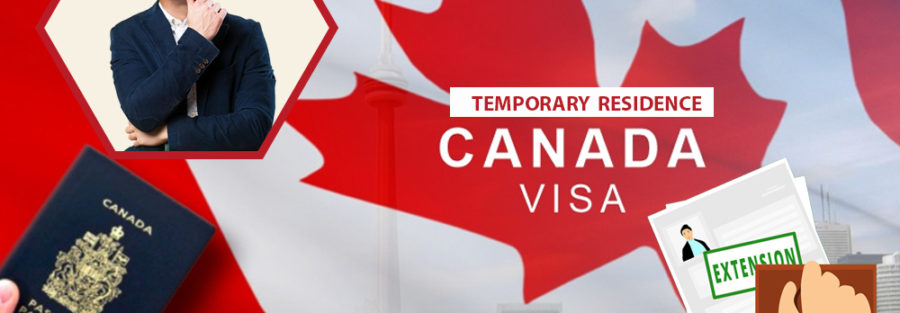How To Extend A Temporary Immigration Status In Canada?
There are numerous options for visitors, overseas students, and casual foreign workers to prolong their stay in Canada. Several options are available from Immigration, Refugees and Citizenship Canada (IRCC) for temporary immigration to Canada while awaiting a judgment on their long-term or short-term residency. For instance, temporary immigrants are exempt from having to leave Canada if they apply for a new temporary immigration status. Additionally, the IRCC takes a decision earlier than. Students, tourists, and transient foreign workers with continued status may stay in Canada as long as their new entry is accepted under the same restrictions as before.
Options to switch your Resident Visa Canada:
1. Bridging Open Work Permit (BOWP):
Those with temporary residence who are applying for permanent residence and whose papers are about to end may be qualified for a Bridging Open Work Permit.
The following immigration programs, a BOWP is accessible:
- Program for Federally Skilled Workers
- Class for Canadian Experience
- Program for Federally Qualified Trades
- Initiatives for Provincial Nominees
- Skilled Workers in Quebec
- Pilot Agri-Food Project
2. Post-Graduation Work Permit (PGWP):
Some interim residency licenses, like the Post-Graduation Work Permit (PGWP), are sustainable and expandable. But not all of them. This does not inherently preclude these employees from being qualified for another type of work permit, though.
3. Temporary Resident Visa (TRV):
Requesting for a Temporary Resident Visa (TRV) in Canada is usually not a good option as it does not allow you to pursue employment or study. Even though it is a chance for numerous people. Those who are on a TRV may be qualified to file for Visitor Records, which permits them to remain for longer than six months but prohibits them from working or attending school.
Other Options for Immigrating to Canada:
We consider where people can remain if they gain from these things:
- Permits to Work
- Study Permits
- Permits to Work After Graduation
· Permits to Work:
In Canada, there are two categories of employment permits: those that require a favorable or unfavorable Labor Market Impact Assessment (LMIA), and those which do not.
LMIA:
An LMIA is used to demonstrate to the Canadian government that a foreign worker is required to complete a position. The business, rather than the employee, is required to complete the LMIA process. When Employment and Development Services Canada (EDSC) gives a company a favorable or neutral LMIA. The hiring manager provides a duplicate of the confirmation document to the employee. The employee then submits a work visa application to IRCC.
LMIA Purpose:
The purpose of LMIA-exempt work licenses, in the eyes of the government, is to promote Canadian interests. The LMIA-exempt permit for work categories with the greatest popularity. It is significant compensation and mutual employment. In Canada, a foreign worker who will provide a “significant benefit” to the social, cultural, or fiscal well-being of Canadians is referred to as such.
When Canada and another country come to an arrangement that permits cross-border transfers of employees, reciprocal employment takes place. Since immigrants can choose from comparable choices in Canada as Canadians can choose from abroad. therefore, the effect on the labor market is viewed as neutral.
LMIA-Exempted Group:
The LMIA-exempt group includes open work permits, which enable holders to work anywhere in Canada for any company. Included are any work licenses granted by CUSMA, CETA, or other free trade deals with Canada. Identical work licenses are available through the International Experience Canada (IEC) scheme. Teenagers from particular countries have the chance to experience Canada thanks to the IEC.
· Study Permit
If it is in your best interest financially and professionally to stay in Canada, you might be able to do so by obtaining a study visa. You will have the option to work both full- and part-time during set intervals throughout the school year.
To obtain a student permit, you must first be accepted into a Designated Learning Institution (DLI). After that, you can use your certificate of acceptance to file for a student visa in Canada.
If you complete your program successfully, you may be eligible to remain in Canada under the PGWP. Additionally, you are qualified for unique pathways to PR visa Canada for international students.
· Permit to Work After Graduation (PGWP)
The Post-Graduation Work Permit (PGWP) can serve as an option for foreign students who have completed a post-secondary degree at an authorized Designated Learning Institution (DLI) to remain in Canada. (DLI). Because it is a permit that can be used anywhere, the holder is not restricted to a particular employer or line of employment.
A PGWP that fits the length of a study course that lasts over eight months but is shorter than two years may be available. A three-year PGWP may be available for foreign undergraduates who have successfully completed two-year or longer studies.
· Open Work Permit for Spouse (SOWP)
If your common-law partner or spouse is a Canadian national or has a resident visa in Canada, then spousal sponsorship might be an option for you. The Spousal Open Work Permit (SOWP), which is intended specifically for couples and common-law partners of Canadians who are in the immigration procedure, may be available to you if you apply for assistance from within Canada and are accepted as an in-land applicant.
Spouses of temporary residents may also qualify for an open work permit. Specific qualifying conditions must be met by temporary foreign workers, including, among other things, maintaining an active work permit for six months after getting an open spousal work permit. Additionally, foreign employees must meet one of the following four criteria:
- engaged in employment at the National Occupational Classification (NOC) skill levels of 0 or A or B;
- being approved into an Atlantic Immigration Program (AIP) stream and employed in any profession;
- engage in any employment for which the Provincial Nominee Program (PNP) has nominated a province or territory; or
- engage in any employment while possessing a Quebec Selection Certificate. (CSQ).
PR visa Canada Immigration Consultants in India:
We at Fly High Abroad India advise our customers on their greatest chances of immigration to Canada. Regarding their professional backgrounds, we analyze their applications and assist them in the visa process. Our goal is to offer hassle-free services to our clients throughout their visa process.


